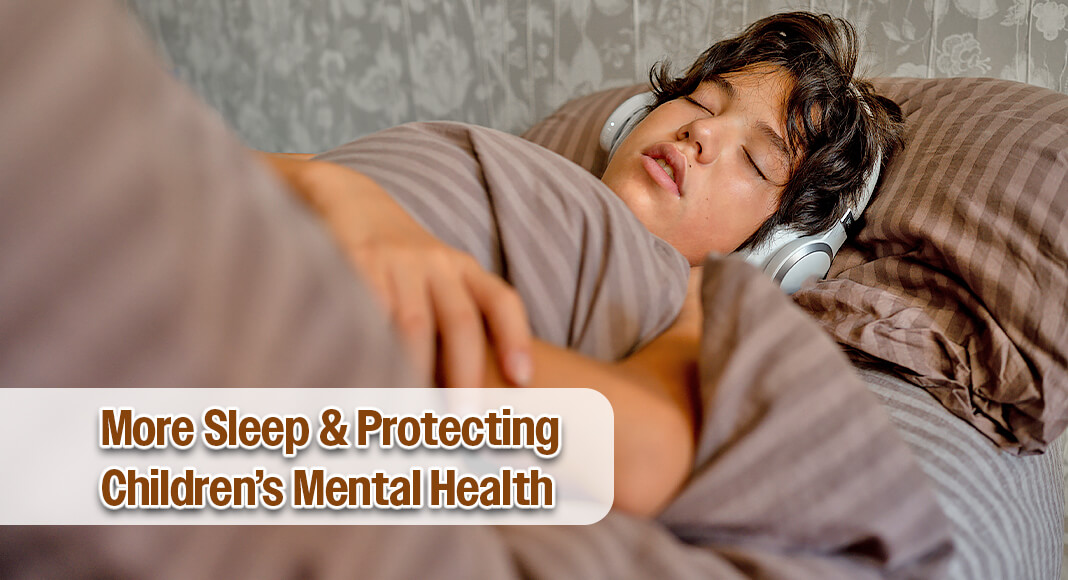
Mega Doctor News
By Leigh Hataway / University of Georgia
Newswise — Your teen’s sleeping habits may affect how their brain functions, according to new research from the University of Georgia. And lack of quality sleep may put kids at risk of developing problem behaviors in the future.
The study found that adolescents who got less sleep had less connectivity between the parts of the brain that play a critical role in decision making, self-reflection and processing information. Malfunctions in these parts of the brain are also linked to mental illnesses such as depression, ADHD and schizophrenia.
The children with less brain connectivity in this region were more likely to exhibit behavioral issues like acting out, poor impulse control and aggressiveness.
“Sleep isn’t just good for children. It helps keep their mental health intact and helps them regulate their emotions,” said Assaf Oshri, corresponding author of the study and a professor in the UGA College of Family and Consumer Sciences. Oshri also serves as director of the UGA Georgia Center for Developmental Science.
“The paper shows that sleep duration and sleep efficiency are linked to distinct patterns of brain network connectivity that are predictive of problem behaviors.”
The study suggests that interventions targeted at increasing adolescents’ sleep could help prevent conduct problems in the future.
Boys, minority children at risk of problem behavior due to lack of sleep
The researchers relied on data from the Adolescent Brain and Cognitive Development Study, which is the largest long-term study of brain development and child health in the U.S.
The present study followed more than 2,800 adolescents, using Fitbits to objectively track how well and for how long the children slept for an average of two weeks. The researchers compared that data with the same children’s MRIs. The imaging identified distinct patterns in connectivity between brain regions.
The children’s parents also reported on problem behaviors during the second and third year.
Boys, older children and kids from minority races tended to have shorter periods of sleep. Boys and minority children were also more likely to demonstrate problem behaviors in the second and third years of the study period.
Adolescence critical period for brain development
The study’s findings suggest the effects of frequent nights of too little sleep snowball.
“Adolescence is an extremely critical period for brain development,” said Linhao Zhang, lead author of the study and a recent doctoral graduate of the College of Family and Consumer Sciences. “And sleep is critical for brain development. But many adolescents don’t get enough quality sleep at night.”
That lack of quality sleep can make it more difficult for children to learn to regulate their emotions and control their impulses.
“How adolescents sleep influences how their brains function, and that influences their mental health outcomes,” Zhang said. “It’s not just about how long you slept. It’s how well did you sleep? Did you take a long time to fall asleep? Did you wake up in the middle of the night?”
Published in Brain and Behavior, the study was co-authored by Charles Geier, a professor in the Department of Human Development and Family Science and associate director of the Georgia Center for Developmental Science, and Dr. Ellen House, an associate professor of psychiatry with the Augusta University/University of Georgia Medical Partnership.









